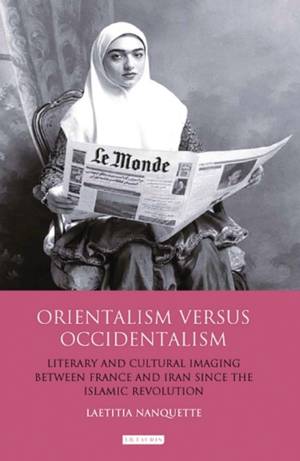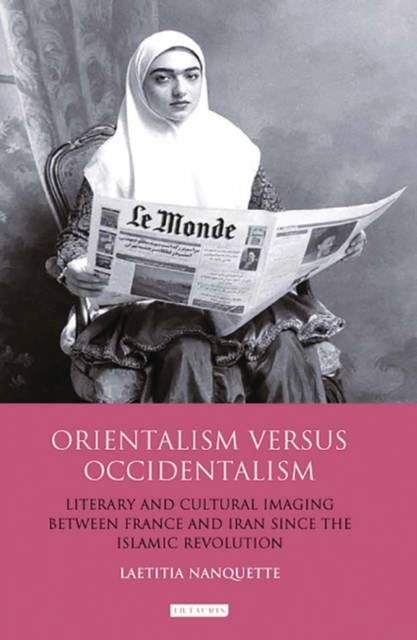
- Afhalen na 1 uur in een winkel met voorraad
- Gratis thuislevering in België vanaf € 30
- Ruim aanbod met 7 miljoen producten
- Afhalen na 1 uur in een winkel met voorraad
- Gratis thuislevering in België vanaf € 30
- Ruim aanbod met 7 miljoen producten
Orientalism Versus Occidentalism Literary and Cultural Imaging Between France and Iran Since the Islamic Revolution
Literary and Cultural Imaging Between France and Iran Since the Islamic Revolution
Laetitia NanquetteOmschrijving
At a time when Iran is represented in the French media as a rogue state obsessed with its nuclear programme, and whilst France is portrayed in the Iranian media as a decadent and imperialist country, this book examines the ways in which these representations and stereotypes are shared, nuanced, or overcome beyond the sphere of the fourth estate. Here, Laetitia Nanquette examines the functions, processes and mechanisms of stereotyping and imagining the 'Other' that have pervaded the literary traditions of France and Iran when writing about each other. Orientalism versus Occidentalism explores the extent to which orientalism and occidentalism have each influenced and are in turn perpetuated in the texts of both French and Iranian authors. And conversely, it also looks at the consequences of attempts by authors to distance themselves from these two discourses. After both using and questioning the dichotomy of orientalism and occidentalism, Nanquette details how France and Iran represent each other in the contemporary period through their narrative literature in prose, by listing and classifying all the ways in which they do so.
She examines the image of the Other in the works of writers such as Goli Taraqi, Bernard Ollivier and Marjane Satrapi. In order to explore this, Nanquette draws upon a broad range of literary genres such as the historical novel, travel writing and autobiography. This exploration of the literary traditions of the relationship between France and Iran is used to shed light on the cultural history of Franco-Iranian relations and on contemporary socio-political realities. With themes that feed into popular debates about the nature of orientalism and occidentalism, and how the two interact, this book will be vital for researchers of Middle Eastern literature and its relationship with writings from the West, as well as those working on the cultures of the Middle East.
Specificaties
Betrokkenen
- Auteur(s):
- Uitgeverij:
Inhoud
- Aantal bladzijden:
- 264
- Taal:
- Engels
- Reeks:
- Reeksnummer:
- nr. 24
Eigenschappen
- Productcode (EAN):
- 9781848859784
- Verschijningsdatum:
- 30/10/2012
- Uitvoering:
- Hardcover
- Formaat:
- Genaaid
- Afmetingen:
- 140 mm x 216 mm
- Gewicht:
- 453 g

Alleen bij Standaard Boekhandel
Beoordelingen
We publiceren alleen reviews die voldoen aan de voorwaarden voor reviews. Bekijk onze voorwaarden voor reviews.











